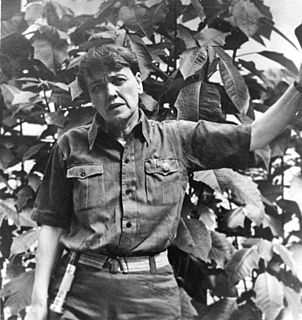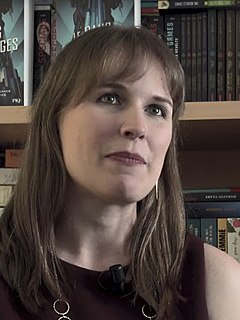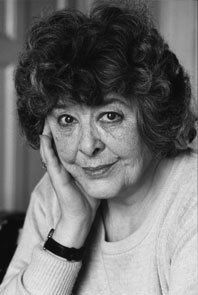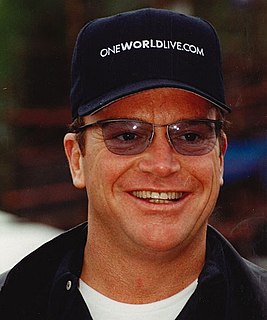A Quote by Agnes Smedley
My mother listened to all the news from the camp during the strike. She said little, especially when my father or the men who worked for him were about I remember her instinctive and unhesitating sympathy for the miners.
Related Quotes
The woman who fights against her father still has the possibility of leading an instinctive, feminine existence, because she rejects only what is alien to her. But when she fights against the mother she may, at the risk of injury to her instincts, attain to greater consciousness, because in repudiating the mother she repudiates all that is obscure, instinctive, ambiguous, and unconscious in her own nature.
Her [Eleanor Roosevelt] father was the love of her life. Her father always made her feel wanted, made her feel loved, where her mother made her feel, you know, unloved, judged harshly, never up to par. And she was her father's favorite, and her mother's unfavorite. So her father was the man that she went to for comfort in her imaginings.
My mother told me I said to her, at age three, 'I'm going to go to Italy and get my father in a tractor.' 'You've never seen quite so fierce a little boy as you were,' she told me. She tried to explain that I couldn't get my father in a tractor. Apparently I looked at her and narrowed my eyes and said, 'In that case, I'm going in a double-decker bus,' and stomped off. Which is kind of funny, but it's very sad, as well.
My father died at 42, of a heart attack. My mother was 32 then. She never wanted to be a victim. And that really resonated as a nine-year-old child. And one of the most revealing things was, very soon after my father died - he was in real estate and he owned some modest buildings - they came to my mother, the men that worked for him, and they said, "You don't have to worry. We will run the business and we will take care of you." And my mother said, "No, you won't. You will teach me how to run the business and I will take care of it and my children."
I mean, her father was an alcoholic, and her mother was the suffering wife of a man who she could never predict what he would do, where he would be, who he would be. And it's sort of interesting because Eleanor Roosevelt never writes about her mother's agony. She only writes about her father's agony. But her whole life is dedicated to making it better for people in the kind of need and pain and anguish that her mother was in.
The idea of the book ["The Japanese Lover"] came in a conversation that I had with a friend walking in the streets of New York. We were talking about our mothers, and I was telling her how old my mother was, and she was telling me about her mother. Her mother was Jewish, and she said that she was in a retirement home and that she had had a friend for 40 years that was a Japanese gardener. This person had been very important in my friend's upbringing.
When my first daughter was born, my husband held her in his hands and said, 'My God, she's so beautiful.' I unwrapped the baby from her blankets. She was average size, with long thin fingers and a random assortment of toes. Her eyes were close set, and she had her father's hooked nose. It looked better on him.
Blaire, This was my grandmother’s. My father’s mother. She came to visit me before she passed away. I have fond memories of her visits and when she passed on she left this ring to me. In her will I was told to give it to the woman who completes me. She said it was given to her by my grandfather who passed away when my dad was just a baby but that she’d never loved another the way she’d loved him. He was her heart. You are mine. This is your something old. I love you, Rush
Yes. I was looking for Lettie. They were both very kind to me,” Percival said, “Even though they’d never seen me before. And Wizard Howl kept visiting to court Lettie. Lettie didn’t want him, and she asked me to bite him to get rid of him, until Howl suddenly began asking her about you and—“ “what?” he said, “ I know someone called sophie who looks a little like you.. And Lettie said, that’s my sister,’ without thinking,” Percival said. “ And she got terribly worried then, particularly as Howl went on asking about her sister.
So this is the young man who has intentions toward my little girl." Bobby shifted in his seat and crossed his legs. "It is not fun on this side of the table, is it, Robert?" Uncle Eddie huffed, and Kat had to remember that once upon a time her mother had been a dark-haired girl in that kitchen, and her dad had been the stray she'd brought home. She watched the two men looking at Hale as if they'd never before laid eyes on him. "He's better-looking than the last vagabond I had to take in," Eddie said, standing and carrying empty bowls to the sink. "I'll give him that.
































